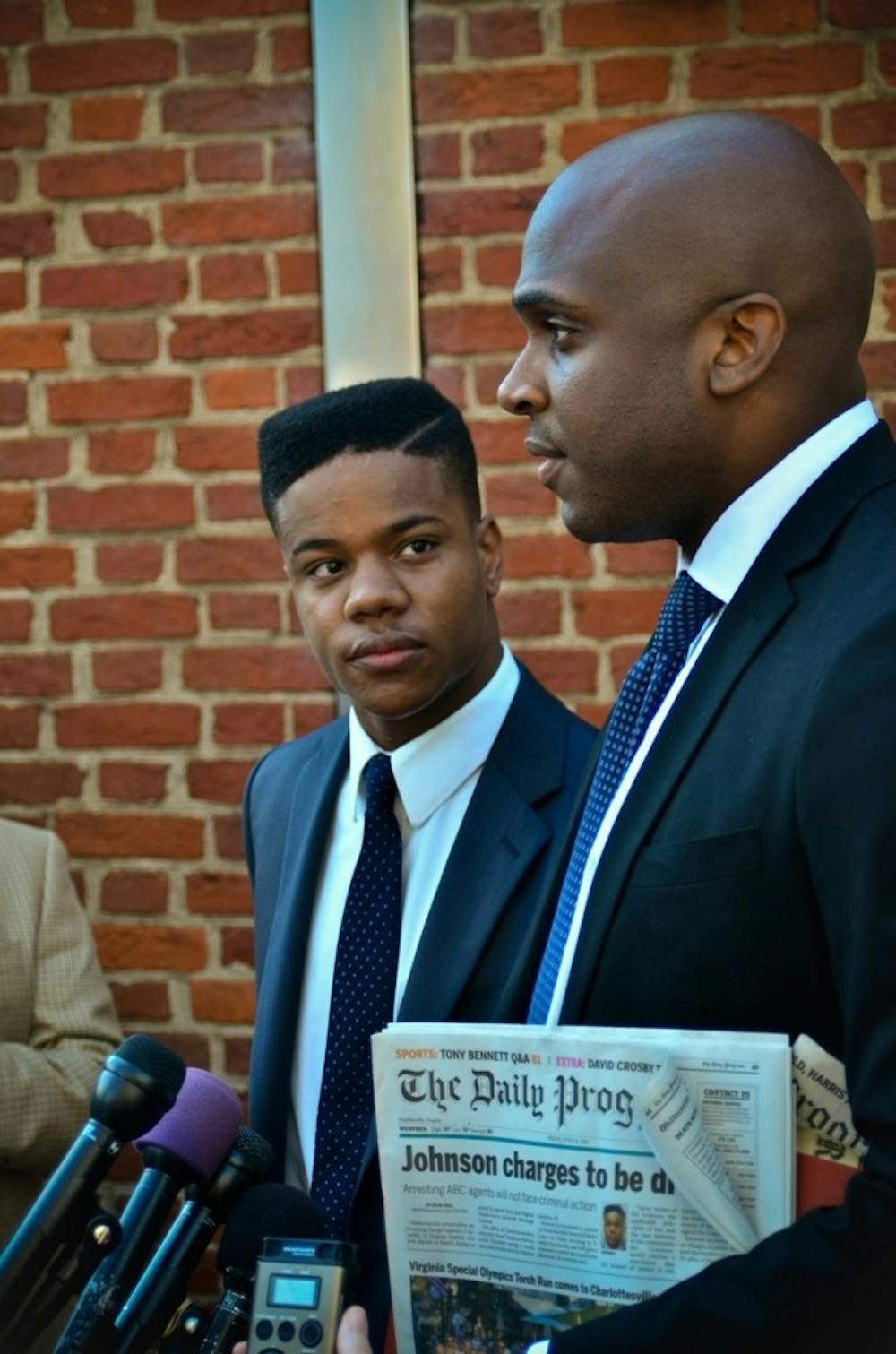The trial for the $3 million civil action lawsuit filed by University graduate Martese Johnson against Alcoholic Beverage Control agents over his controversial 2015 arrest has been delayed a year. The case, filed in October 2015, was scheduled to be settled in court over a four-day jury trial beginning July 25, 2017. It will now occur over two weeks beginning April 2, 2018.
The lawsuit was filed after Johnson, then a third-year College student, was arrested by ABC law enforcement officers outside of Trinity Irish Pub on the Corner in March 2015. The altercation left Johnson on the ground and bleeding from his head, requiring stitches.
Johnson originally filed the $3 million civil lawsuit against the ABC, then-ABC Director of Enforcement Shawn Walker and ABC law enforcement officers Jared Miller, Thomas Custer and John Cielakie. The court ruled to remove the ABC and Cielakie from the case in December 2016.
Miller and Custer are being tried for counts of excessive force, gross negligence, assault and battery while Walker faces a count of supervisor liability.
Johnson filed his motion to amend the scheduling order of the case and extend the discovery, or gathering of pretrial evidence, deadline. He claimed a lack of cooperation from the defendants led him to request the delay.
“[Johnson’s] counsel has made a good faith effort to resolve this matter with Defendants’ counsel without success, which has necessitated the filing of this Motion,” the motion reads.
According to court documents, Johnson claims he does not have “sufficient time to pursue his supervisory liability claims” before the the discovery deadline of June 9, 2017, due to a “fundamental dispute over the scope of discovery in this case.”
The motion lists various tasks Johnson must accomplish before the trial, including obtaining and reviewing discovery, seeking out additional discovery based on that review, settling any disputes regarding that discovery, preparing expert reports and taking depositions.
Johnson further claims the four-day duration of the trial will not provide enough time for witnesses to present their cases.
Consequently, Johnson requested the court “continue the trial date and discovery deadlines until a time mutually agreeable to the parties, and reserve two weeks for trial rather than the four days current set aside,” according to the motion.
The defendants — Miller, Custer and Walker — responded to Johnson’s motion April 26 with a statement of neutrality over the request for a delay and a denial of their roles in causing it.
They said they could “neither consent to nor oppose the Motion to Continue,” meanwhile disputing the “implications in the Motion to Continue that they are to blame for the plaintiff’s most recent delay of this action.”
The response also said “the plaintiff has nobody but himself to blame for seeking a continuance and an amendment of the Scheduling Order,” claiming the plaintiff has “aggressively pursued a course of litigation which has had little to do with his March 18, 2015, arrest” and “has undertaken painstaking efforts to obfuscate and conceal information which refutes his claims.”
The defendants filed a motion for compliance against Johnson Feb. 14, claiming the plaintiff was withholding critical information. Johnson immediately filed a brief in opposition to the motion, asserting the information — which included requests for copies of every identification card he has held in all states, copies of all his postings on social media and sent and received text messages related to the events of the case — was irrelevant.
Johnson then filed his own motion to compel March 2 in response to the defendants’ Feb. 28 filing.
The court ruled March 28 to grant in part and deny in part both parties’ motions to compel. All remaining disputes over the request for production of documents were referred to Joel Hoppe, United States Magistrate Judge for the Western District of Virginia.
Judge Glen Conrad granted the motion to delay the trial until May 2 and announced the case will continue with a two-week jury trial beginning April 2, 2018.







